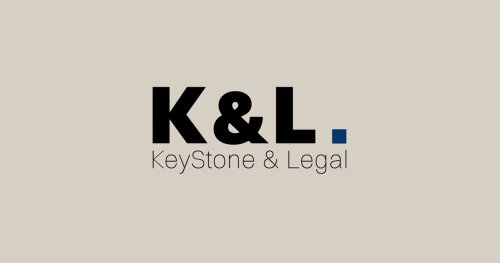Best Office Solutions Lawyers in South Korea
Share your needs with us, get contacted by law firms.
Free. Takes 2 min.
Or refine your search by selecting a city:
List of the best lawyers in South Korea
About Office Solutions Law in South Korea
Office Solutions in South Korea encompasses a variety of legal aspects related to the planning, setting up, management, and optimization of office spaces. This includes leasing contracts, workspace regulations, technology integration, and employment guidelines specific to office environments. The legal framework aims to ensure efficient business operations while protecting the rights and responsibilities of employers, employees, landlords, and service providers within the office ecosystem. South Korea's dynamic economy and rapid technological advancements make it necessary for businesses to stay informed about the latest legal developments in office solutions.
Why You May Need a Lawyer
There are several common situations where individuals or businesses may seek legal advice concerning office solutions in South Korea. These include negotiating or drafting lease agreements for office spaces, resolving disputes related to tenancy or real estate, complying with occupational health and safety regulations, and navigating employment law as it pertains to office settings. Additionally, businesses may require legal assistance in implementing technology solutions within the office, ensuring data protection, and maintaining cybersecurity standards. Legal experts can provide guidance to resolve conflicts, ensure compliance, and optimize office operations effectively.
Local Laws Overview
South Korea's legal landscape for office solutions involves multiple regulations, including contract law, real estate law, labor law, and technology regulations. Key aspects include:
- Lease Agreements: Detailed lease contracts specify terms, conditions, and obligations of landlords and tenants, often subject to the Act on Commercial Building Lease Protection, which safeguards tenant rights.
- Occupational Health and Safety: The Occupational Safety and Health Act outlines employer responsibilities to ensure safe working conditions, particularly relevant for office environments.
- Employment Law: South Korea has comprehensive labor laws that affect employment terms, workplace discrimination, and dismissal procedures.
- Data Protection and Privacy: The Personal Information Protection Act (PIPA) governs the handling and protection of personal data within office settings, critical for technology-driven workplaces.
Frequently Asked Questions
1. What should I consider when signing a lease for office space?
Consider terms such as rent, lease duration, renewal options, maintenance responsibilities, and clauses specific to early termination or dispute resolution.
2. How can I ensure compliance with labor regulations in my office?
Adhere to guidelines provided by the Ministry of Employment and Labor, including fair employment practices, workplace safety, and proper documentation of employment contracts.
3. What are my rights as a tenant under South Korean law?
Tenants have the right to occupy and use leased spaces peacefully, subject to lease terms. The Act on Commercial Building Lease Protection offers additional rights, such as renewal requests and compensation for improvements.
4. How do I handle disputes with my landlord?
Address disputes through negotiation, mediation, or arbitration before considering legal action. Engage a lawyer to guide you through the legal processes if necessary.
5. What legal measures should I take for cybersecurity in my office?
Implement data protection policies, conduct regular audits, and comply with PIPA. Consider seeking legal advice for enhancing security measures and employee training on data protection.
6. How can I address workplace discrimination issues?
Ensure your company policies align with anti-discrimination laws. Investigate complaints promptly and take appropriate corrective actions, while respecting confidentiality.
7. Is it possible to sublease a part of the office space?
Subleasing terms should be clearly defined within the original lease agreement. Obtain landlord approval and ensure compliance with legal requirements before subleasing.
8. What steps should I take if I need to terminate my lease early?
Review early termination clauses in your contract. Communicate intentions clearly with your landlord and negotiate terms, possibly involving compensation for breaches.
9. How can I incorporate technology legally within my office?
Adhere to PIPA and other relevant regulations. Draft clear policies for technology use and digital communication within the office environment.
10. What should I do if I face legal action related to office operations?
Immediate consultation with a qualified lawyer specializing in office solutions and employment law is advised to navigate legal proceedings effectively.
Additional Resources
For further guidance, consider the following resources:
- The Ministry of Employment and Labor provides resources on employment and workplace safety regulations.
- The Korea Legal Aid Corporation offers legal support and advice for civil and commercial issues.
- Real estate agencies with legal departments can provide assistance with lease agreements and property management.
- Technology consulting firms may offer legal compliance services for data protection and cybersecurity solutions.
Next Steps
If you require legal assistance in office solutions, consider these steps:
- Identify the specific legal issue related to your office solution needs.
- Research and consult with qualified lawyers or legal firms specializing in real estate, employment, or technology law in South Korea.
- Prepare all necessary documents, contracts, and information relevant to your legal concern.
- Approach governmental bodies or professional organizations for additional support if needed.
- Follow the legal advice provided to address your issue effectively and ensure compliance with South Korean laws.
Lawzana helps you find the best lawyers and law firms in South Korea through a curated and pre-screened list of qualified legal professionals. Our platform offers rankings and detailed profiles of attorneys and law firms, allowing you to compare based on practice areas, including Office Solutions, experience, and client feedback.
Each profile includes a description of the firm's areas of practice, client reviews, team members and partners, year of establishment, spoken languages, office locations, contact information, social media presence, and any published articles or resources. Most firms on our platform speak English and are experienced in both local and international legal matters.
Get a quote from top-rated law firms in South Korea — quickly, securely, and without unnecessary hassle.
Disclaimer:
The information provided on this page is for general informational purposes only and does not constitute legal advice. While we strive to ensure the accuracy and relevance of the content, legal information may change over time, and interpretations of the law can vary. You should always consult with a qualified legal professional for advice specific to your situation.
We disclaim all liability for actions taken or not taken based on the content of this page. If you believe any information is incorrect or outdated, please contact us, and we will review and update it where appropriate.
Browse office solutions law firms by city in South Korea
Refine your search by selecting a city.

















